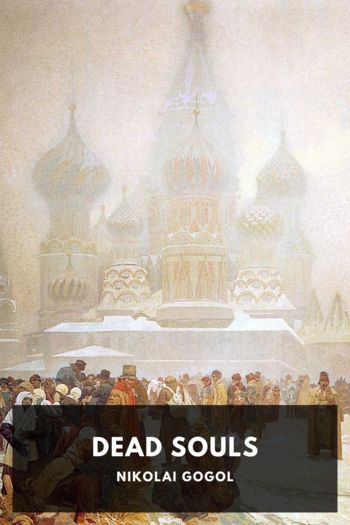Short Fiction - Nikolai Gogol (best selling autobiographies TXT) 📗

- Author: Nikolai Gogol
Book online «Short Fiction - Nikolai Gogol (best selling autobiographies TXT) 📗». Author Nikolai Gogol
And here, above all, did our young Cossacks, disgusted with pillage, greed, and a feeble foe, and burning with the desire to distinguish themselves in presence of their chiefs, seek to measure themselves in single combat with the warlike and boastful Lyakhs, prancing on their spirited horses, with the sleeves of their jackets thrown back and streaming in the wind. This game was inspiriting; they won at it many costly sets of horse-trappings and valuable weapons. In a month the scarcely fledged birds attained their full growth, were completely transformed, and became men; their features, in which hitherto a trace of youthful softness had been visible, grew strong and grim. But it was pleasant to old Taras to see his sons among the foremost. It seemed as though Ostap were designed by nature for the game of war and the difficult science of command. Never once losing his head or becoming confused under any circumstances, he could, with a cool audacity almost supernatural in a youth of two-and-twenty, in an instant gauge the danger and the whole scope of the matter, could at once devise a means of escaping, but of escaping only that he might the more surely conquer. His movements now began to be marked by the assurance which comes from experience, and in them could be detected the germ of the future leader. His person strengthened, and his bearing grew majestically leonine. “What a fine leader he will make one of these days!” said old Taras. “He will make a splendid leader, far surpassing even his father!”
Andrii gave himself up wholly to the enchanting music of blades and bullets. He knew not what it was to consider, or calculate, or to measure his own as against the enemy’s strength. He gazed on battle with mad delight and intoxication: he found something festal in the moments when a man’s brain burns, when all things wave and flutter before his eyes, when heads are stricken off, horses fall to the earth with a sound of thunder, and he rides on like a drunken man, amid the whistling of bullets and the flashing of swords, dealing blows to all, and heeding not those aimed at himself. More than once their father marvelled too at Andrii, seeing him, stirred only by a flash of impulse, dash at something which a sensible man in cold blood never would have attempted, and, by the sheer force of his mad attack, accomplish such wonders as could not but amaze even men grown old in battle. Old Taras admired and said, “And he too will make a good warrior if the enemy does not capture him meanwhile. He is not Ostap, but he is a dashing warrior, nevertheless.”
The army decided to march straight on the city of Dubno, which, rumour said, contained much wealth and many rich inhabitants. The journey was accomplished in a day and a half, and the Zaporozhtzi appeared before the city. The inhabitants resolved to defend themselves to the utmost extent of their power, and to fight to the last extremity, preferring to die in their squares and streets, and on their thresholds, rather than admit the enemy to their houses. A high rampart of earth surrounded the city; and in places where it was low or weak, it was strengthened by a wall of stone, or a house which served as a redoubt, or even an oaken stockade. The garrison was strong and aware of the importance of their position. The Zaporozhtzi attacked the wall fiercely, but were met with a shower of grapeshot. The citizens and residents of the town evidently did not wish to remain idle, but gathered on the ramparts; in their eyes could be read desperate resistance. The women too were determined to take part in the fray, and upon the heads of the Zaporozhians rained down stones, casks of boiling water, and sacks of lime which blinded them.





Comments (0)